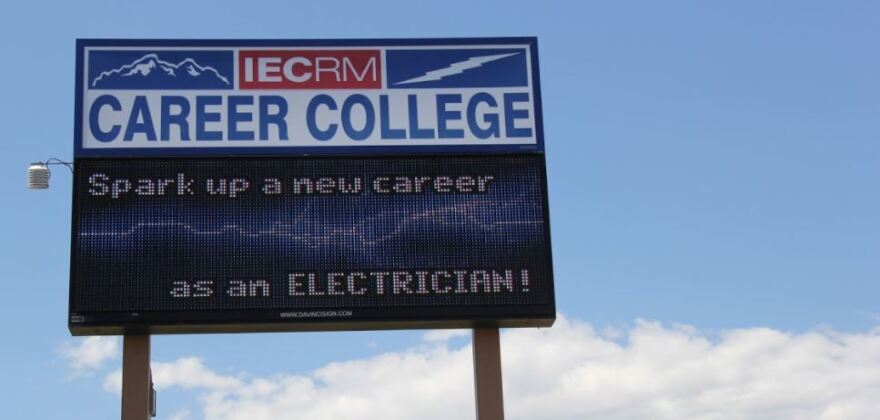At a recent job fair for prospective electricians in Northglenn, Colorado, one skilled out-of-state worker named Eduardo Havier was looking for a job.
“I’m from Puerto Rico, but I currently live in Louisiana. I came all the way here just to see what you guys had going on.”
Havier flew out from Louisiana for the day, just to attend the job fair. He’s 23 years old, and already has a degree in electrical engineering technology from a community college, but he can’t find employment where he lives.
“I spent so many years and effort trying to pass my classes, I want to work in the field I went to school for. The real situation is if you don’t know anybody at the workplace, you don’t get a job.”
People like Havier are the key to solving Colorado’s construction employment problem, according to Rich Wobbekind, lead economist at the Leeds School of Business.

“Frankly it’s a constraining factor in terms of job growth going forward,” he said.
Wobbekind is referring to the state’s 2.3 percent unemployment rate. He said the number of people who are looking for work is tiny, but it also constricts business growth since they are having a hard time finding skilled workers.
“You’d have to believe that almost all of that is a mismatch between the types of jobs that are available and the types of skills that these particular people have,” Wobbekind said.
According to the Bureau of Labor Statistics, construction employment is down almost 11 percent from the July 2007 peak of 170,100 workers -- even though there’s plenty of construction work.
Wobbekind thinks it will only be solved by net migration - people like Havier, with the skills employers need moving to the state. Skilled trades - electricians, plumbers - are especially hard to find.
As director of business and finance at Brett’s Electric, Janet Martin has been in the industry for over 17 years and witnessed the decline in the number of electricians.

“There were a lot of electricians when we started,” she said. “However, when the economy took a dive from 2008 for three years, that’s when all the electricians did find something else. And then a lot of our electricians are nearing retirement, so that increases the need.”
Electricians aren’t the only profession affected by an aging workforce. Over a quarter of the doctors in the state are collecting Social Security. Skilled trades don’t require a college degree, but they can be a ticket to the middle class. The average income for a Colorado electrician is about $50,000.
For 21-year-old Catherine Cuthbert, that’s part of the draw. She has an associate degree, but couldn’t find a job to help pay off her student loans, so she signed up for classes to become an electrician.
“I paid my own tuition for the first semester, but often if I manage to get an apprenticeship, they’ll rearrange it so I get that money back, which would be really nice because it’s cheaper than college but it’s still a lot of money to me,” she said.

At the end of the job fair, both Cuthbert and Havier had filled out applications and seemed hopeful.
“I think it’s going really great. Construction is booming right now, everyone really needs to hire,” Cuthbert said.
But when I reached out two weeks later, neither of them had gotten jobs. Cuthbert wasn’t offered an apprenticeship at all, so she’s paying for her classes to become an electrician on her own. Havier wrote in an email that employers were only willing to offer him part-time work at low wages -- even though he already had the requisite education.
He isn’t alone. Despite a tight labor market, wages have barely budged since the recession. Economist Rich Wobbekind thinks wages in Colorado at least, will rise in 2018 by around 3 percent.
“It’s kind of well-overdue,” he said. “People have been getting compressed in terms of cost of living and housing so it will be some welcome relief.”
But with the cost of living continuing to increase at around 3 percent every year in Colorado, it may not be enough to attract the skilled workers Colorado’s economy needs.






